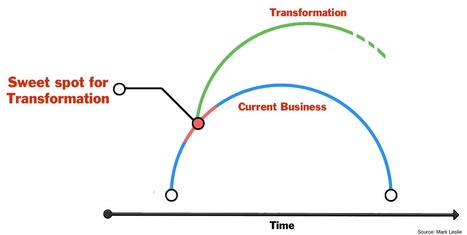As Steve Blank states: "The dilemma facing the boards at Microsoft, Apple or any board of directors on the departure of an innovative CEO is strategic: Do we still want to be a innovative, risk taking company? Or should we now focus on execution of our core business, reduce our risky bets and maximize shareholder return.Tactically, that question results in asking: Do you search for another innovator from outside, promote one of the executors or go deeper down the organization to find an innovator?Herein lies four challenges. Steve Jobs and Bill Gates (and 20th century’s other creative icon -Walt Disney) shared the same blind spot: They suggested execution executives as their successors. They confused world-class execution with the passion for product and customers, and market insight. From the perspective of Gates there was no difference between him and Ballmer and from Jobs to Cook. Yet history has shown us for long-term survival in markets that change rapidly that’s definitely not the case.The second conundrum is that if the board decides that the company needs another innovator at the helm, you can almost guarantee that the best executor – the number 2 and/or 3 vice president in the company – will leave, feeling that they deserved the job. Now the board is faced with not only having lost its CEO, but potentially the best of the executive staff.The third challenge is that many innovative/visionary CEOs have become part of the company’s brand. Steve Jobs, Jeff Bezos, Mark Zuckerberg, Jeff Immelt, Elon Musk, Mark Benioff, Larry Ellison. This isn’t a new phenomenon, think of 20th-century icons like Walt Disney, Edward Land at Polaroid, Henry Ford, Lee Iacocca at Chrysler, Jack Welch at GE and Alfred Sloan at GM. But they’re not only an external face to the company, they were often the touchstone for internal decision-making. Years after a visionary CEO is gone companies are still asking “What would Walt Disney/Steve Jobs/Henry Ford have done?” rather than figuring out what they should now be doing in the changing market.Finally, the fourth conundrum is that as companies grow larger and management falls prey to the fallacy that it only exists to maximize shareholder short-term return on investment, companies become risk averse. Large companies and their boards live in fear of losing what they spent years gaining (customers, market share, revenue, profits.) This may work in stable markets and technologies. But today very few of those remain."
Research and publish the best content.
Get Started for FREE
Sign up with Facebook Sign up with X
I don't have a Facebook or a X account
Already have an account: Login
 Your new post is loading... Your new post is loading...
 Your new post is loading... Your new post is loading...
|










